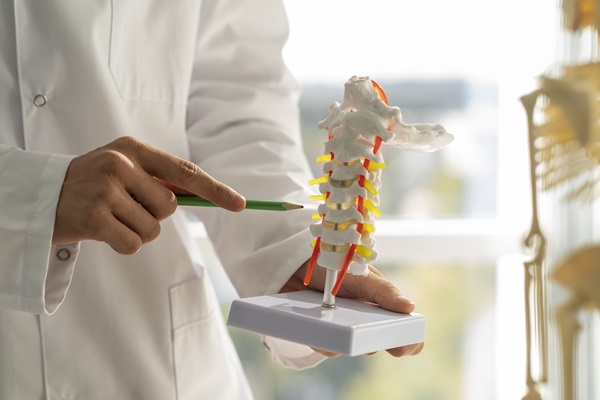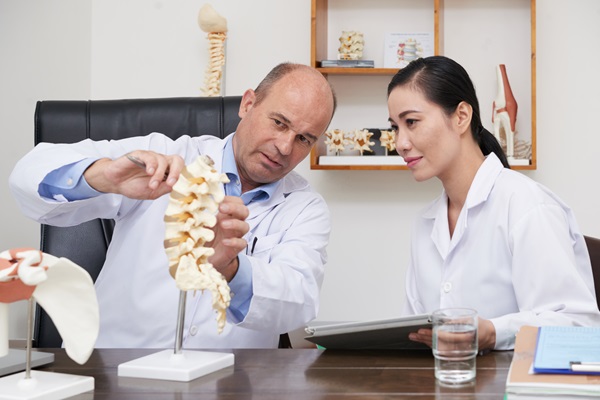The resilient fortress of our skeletal system plays a pivotal role in ensuring our bodies function optimally. In this comprehensive exploration of maintaining bone health, we will uncover the remarkable intricacies that govern the strength and vitality of our bones.

The Marvelous Complexity of Bone Anatomy
Our bones are not lifeless; they are living tissues that constantly change. Comprising a matrix of minerals and collagen, they provide structure, protection, and the mechanical foundation for movement.
Bone Composition
Beneath the surface, bones are a dynamic blend of minerals, collagen, and bone cells. The mineral portion, primarily calcium and phosphorus, provides hardness, while collagen offers flexibility.
Varieties of Bones
The human body boasts a remarkable array of bones, ranging from long bones like the femur to flat bones like the scapula. Each serves unique functions, showcasing nature’s precision engineering.
The Dance of Remodeling
Bones continuously undergo a process called remodeling, where old bone is replaced by new. This keeps bones strong, repairs microdamage, and maintains mineral balance.
The Role of Minerals in Bone Health
Minerals are the bedrock of bone health, with calcium taking center stage. However, others like magnesium and phosphorus play crucial supporting roles.
Maintaining Bone Health
Minerals play a vital role in maintaining bone health, serving as essential building blocks for strong and resilient bones. Calcium, phosphorus, magnesium, and other minerals are critical components of bone tissue, contributing to its strength, density, and structure.
Calcium’s Crucial Role
Calcium is like the building blocks of bone. It’s vital for bone density and strength, making it essential at all stages of life.
Magnesium’s Masterstroke
While calcium gets the limelight, magnesium is the unsung hero, regulating calcium levels, influencing bone density, and supporting bone health.
Phosphorus’s Hidden Influence
Often overshadowed by calcium, phosphorus works in harmony to build strong bone tissue. Balance is key, and it impacts various biological processes.
Vitamins and Their Bone Health Benefits
Several vitamins contribute to maintaining strong and healthy bones. Vitamin D, K, and C each have their unique roles to play.
Vitamin D: The Sunshine Vitamin
Vitamin D is vital for calcium absorption and bone mineralization. Sun exposure and dietary sources are crucial for maintaining its levels.
The Lesser-Known Vitamin K
Vitamin K is essential for bone formation and repair, helping to activate proteins that support calcium binding to bone tissue.
Vitamin C and Collagen
Vitamin C, often associated with immunity, also aids in the production of collagen, the structural protein that gives bones their resilience.
Achieving a Balanced Diet for Bone Health
Balancing your diet to support maintaining bone health is more than just chugging a glass of milk. It’s about a holistic approach to nutrition.
Embrace Calcium-Rich Foods
Dairy products, leafy greens, and fortified foods are excellent sources of calcium, but there are alternatives for lactose-intolerant individuals.
Harnessing the Power of Vitamin D
Beyond dairy, fatty fish, eggs, and sunlight are sources of vitamin D. It’s crucial to maintain adequate levels throughout life.
Nutrient Synergy for Optimal Bone Health
The collaboration of calcium, vitamin D, vitamin K, and magnesium in your diet ensures the symphony of bone health plays harmoniously.
Building Bone Strength through Exercise
Exercise isn’t only for muscles; it’s also essential for bones. Explore how different forms of exercise contribute to bone health.
Weight-Bearing vs. Resistance Training
Weight-bearing exercises like walking and running stress bones, promoting increased density. Resistance training, on the other hand, builds bone strength by working against resistance.
Understanding the Impact of Physical Activity
Regular physical activity positively influences bone health. Weight-bearing exercises stimulate bone formation, and the stress applied during activities like weightlifting encourages bone adaptation.
The Surprising Benefits of Yoga and Balance Exercises
Yoga and balance exercises improve posture, reduce the risk of falls, and enhance flexibility, making them valuable for maintaining bone health, especially in older adults.
Lifestyle Choices and Their Effects on Bones
Your daily choices significantly impact bone health. Smoking, excessive alcohol consumption, and even stress can erode the strength of your bones.
Smoking’s Bone-Breaking Habit
Smoking not only damages the lungs but also accelerates bone loss, raising the risk of fractures and osteoporosis.
Alcohol and Bone Health
Excessive alcohol disrupts bone remodeling and interferes with nutrient absorption, contributing to reduced bone density.
Stress: The Silent Culprit
Chronic stress leads to the release of hormones like cortisol, which can weaken bones over time. Managing stress is crucial for overall well-being, including bone health.

Assessing Bone Density and Risk
Understanding your bone density and risk factors is the first step in proactive bone health management.
Bone Density Tests: The Baseline
Dual-energy X-ray absorptiometry (DXA) scans measure bone density and help identify potential issues early.
Identifying Risk Factors for Osteoporosis
Certain factors like genetics, age, gender, and medications can increase the likelihood of osteoporosis.
Prevention and Early Detection
Awareness of risk factors and regular check-ups can lead to early intervention and better management of bone health issues.
Tailored Care for Different Ages
Maintaining bone health requirements changes at different stages of life, from childhood to the senior years.
Childhood and Adolescence
Building peak bone mass during these formative years is crucial for long-term skeletal health.
Adulthood and Middle Age
Balancing bone loss with bone formation becomes increasingly important during these years.
Senior Years
As bone density naturally declines with age, the focus shifts to minimizing bone loss and preventing fractures.
Bone Health and Women
Women face unique challenges when it comes to maintaining bone health, particularly during menopause and pregnancy.
Menopause and Bone Health
Hormonal changes during menopause can accelerate bone loss, making it a critical time for proactive measures.
Pregnancy and Bone Health
Pregnancy places increased demands on the body, including calcium for fetal development, making proper nutrition vital for both mother and child.
Hormone Replacement Therapy
HRT can help manage menopausal symptoms and may have positive effects on bone health, but it’s not without risks.
Bone Health and Men
Men also grapple with age-related bone health issues, albeit differently.
Aging and Testosterone
As men age, testosterone levels decline, which can affect bone density. Regular exercise and a balanced diet are crucial.
Lifestyle Choices for Men
Maintaining bone health is equally important for men. Limiting alcohol, quitting smoking, and staying active contribute to overall well-being.
Osteoporosis in Men
While osteoporosis is often associated with women, men can also develop this condition. Awareness is key to early diagnosis and management.
Common Bone Conditions
Various bone conditions can impact our skeletal health, with osteoporosis, osteoarthritis, and rheumatoid arthritis being the most prevalent.
Osteoporosis
This “silent disease” weakens bones, increasing the risk of fractures. Prevention, early detection, and proper treatment are essential.
Osteoarthritis
A degenerative joint disease, osteoarthritis affects the protective cartilage at the ends of bones. It can lead to pain and limited joint function.
Rheumatoid Arthritis
An autoimmune disease, rheumatoid arthritis can attack joints and bones. Timely treatment can prevent severe bone damage.
Dietary Supplements and Their Role
Supplements can be a valuable addition to your diet to support maintaining bone health, but their use requires careful consideration.
Benefits and Risks of Supplements
Calcium and vitamin D supplements can benefit those with deficiencies, but excessive intake can be harmful.
Recommended Dosages
Consult a healthcare professional to determine the right dosage for your specific needs.
Always Seek Expert Advice
Supplement use should be guided by a healthcare provider to prevent imbalances and potential harm.

Preventing Bone Fractures
Fractures can have severe consequences, especially as we age. Preventive measures are essential.
Fall Prevention Strategies
Simple changes like removing trip hazards and ensuring good lighting can reduce the risk of falls.
Safety at Home
Creating a safe home environment is crucial, especially for seniors, to minimize the risk of fractures.
Emergency Response Plans
Knowing what to do in case of a fall or fracture can make a significant difference in recovery and outcomes.
Medical Treatments for Bone Conditions
In some cases, medical intervention is necessary to manage bone conditions effectively.
Medications for Osteoporosis
Various medications can slow bone loss and reduce the risk of fractures.
Surgical Interventions
In severe cases, surgical procedures like joint replacements or fracture repair may be necessary.
The Role of Physical Therapy and Rehabilitation
Rehabilitation is key to restoring function and mobility after bone injuries or surgeries.
A Holistic Approach to Bone Health
Wellness isn’t just physical; it’s mental and emotional too. A holistic approach to maintaining bone health takes all aspects into account.
Mind-Body Connection
Stress management and mental well-being play a role in maintaining bone health. Practices like mindfulness and meditation can help.
Stress Reduction Techniques
Reducing stress levels through relaxation, exercise, and hobbies can positively impact bone health.
Supportive Therapies
Physical therapy, chiropractic care, and massage can contribute to bone health by enhancing mobility and reducing pain.
Bones and Nutritional Deficiencies
Nutritional deficiencies can impact bone health. Beyond calcium and vitamin D, other nutrients also play essential roles.
Iron Deficiency and Bone Health
Iron is essential for oxygen transport in the blood and overall health, which indirectly affects bone health.
Vitamin B12 and Its Connection
Vitamin B12 is critical for nerve function and can impact bone health in those with deficiencies.
The Role of Zinc
Zinc supports immune function, but its role in collagen synthesis also has implications for bone health.
Debunking Bone Health Myths
Separating fact from fiction is vital for making informed decisions about bone health.
The Dairy Dilemma
While dairy is a calcium source, it’s not the only option for maintaining strong bones.
“Big Bones” Myth
Genetics plays a significant role in bone structure, but this doesn’t excuse poor bone health practices.
Bone Health and Vegetarianism
Vegetarians and vegans can maintain strong bones by carefully planning their diets to ensure necessary nutrients.
Bone Health for Athletes
Athletes put their bones through unique challenges. Special considerations are essential to maintain bone health.
Impact of Sports on Bones
Certain sports can be high-impact, putting athletes at risk of stress fractures and other bone injuries.
Nutrition for Athletes
Athletes require specialized diets to support energy and nutrient needs while also maintaining bone health.
Injury Prevention
Proper training techniques and equipment can help athletes avoid bone injuries and fractures.
The Future of Bone Health Research
The field of bone health is continually evolving, with exciting developments on the horizon.
Emerging Technologies
Advancements in imaging and diagnostics are improving our understanding of maintaining bone health.
Genetic Insights
Genetic research is shedding light on the hereditary aspects of bone health.
Personalized Bone Health Care
Tailored approaches to bone health are becoming increasingly feasible, ensuring that care matches an individual’s unique needs.
Conclusion
Maintaining bone health is an ongoing journey. By empowering ourselves with knowledge and taking proactive measures, we can ensure that our bones remain robust and supportive throughout our lives.


